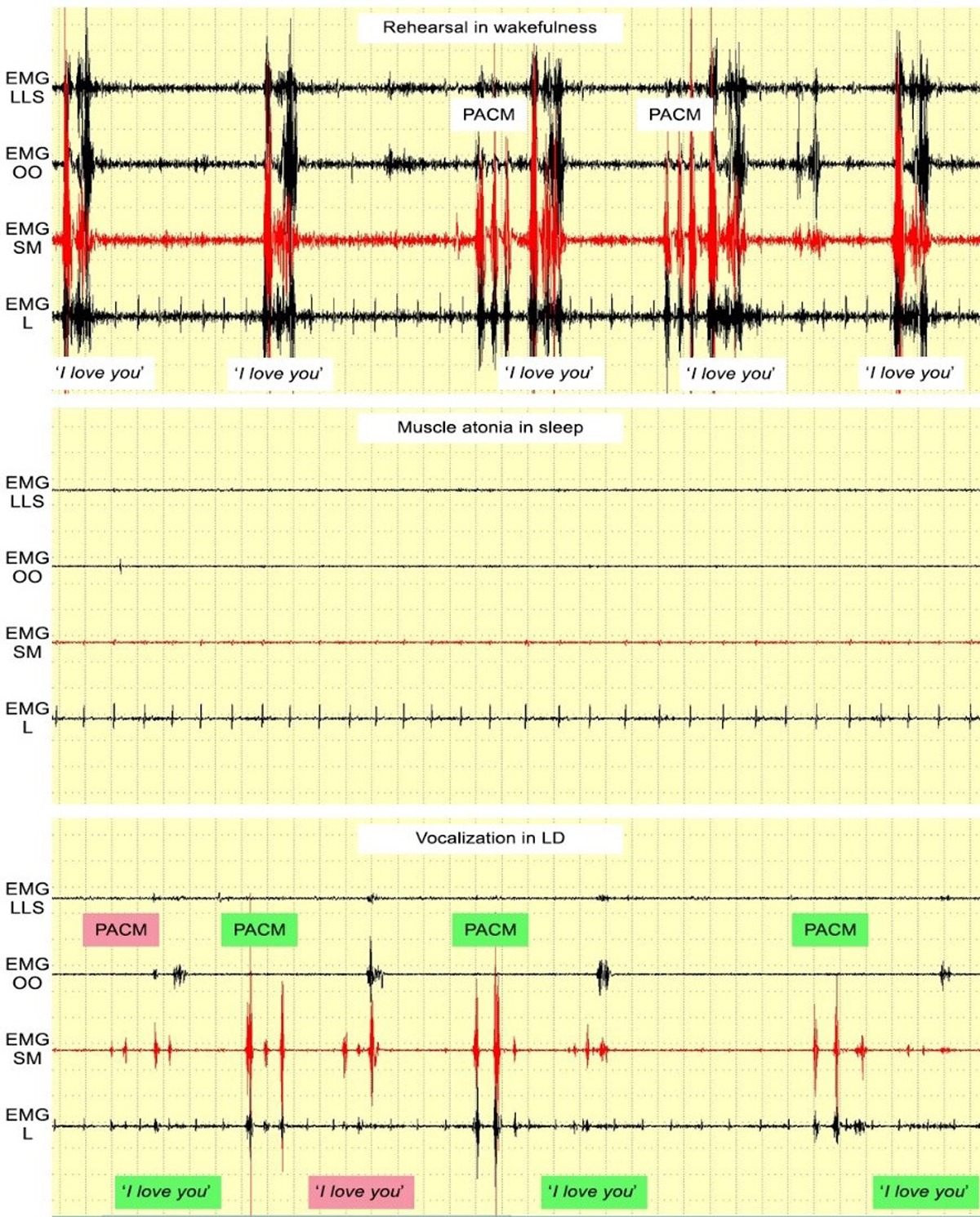Is it possible to look into someone else’s dream and communicate with the dreamer in real time? Until now, in attempting such communication, scientists have used only “yes/no” questions which the dreamer then answered via eye movements or breathing patterns. The potential of Morse code has also been studied. But is full-fledged dialogue possible? One year ego Michael Raduga conducted an experiment involving four experienced lucid dreamers. Connected to the sensors, they were instructed to get into a lucid dream (LD) and say the phrase “I love you.”
Why this particular phrase? The words “I” and “you” have stable and distinctive EMG patterns. The hypothesis was that saying this phrase in a dream would create similar patterns, albeit less clear ones due to sleep paralysis. The participants thus first said this phrase in reality (in order to fix the electrical impulse patterns), and then in the LD. The researcher found that saying the phrase generated the same pattern in the dream and in reality.
This experiment opens up new horizons for the study of sleep. In addition, lucid dreams are closely related to other phase states. In particular, the findings may be helpful to the who people experience fear during sleep paralysis and narcoleptics. If we were able to create a full-fledged dialogue with the dreamer, it would be possible to influence the situation or relieve tension.
Even more opportunities may be opened up by developing a special language for dreamers. This language could use a small number of sounds—only those easily detectable by equipment. Such an artificial language would allow us to “hear” everything said in LD. Practitioners could even communicate with each other over the Internet during sleep.
How would you use the possibility of such a dialogue with dreamers?
The article was published in June 2022 in the journal Sleep Science.




